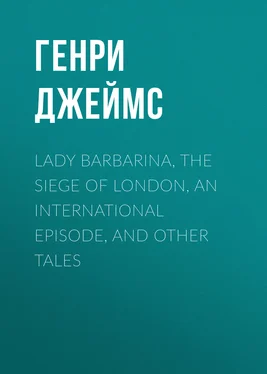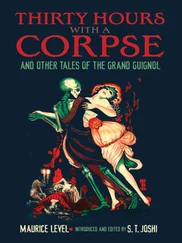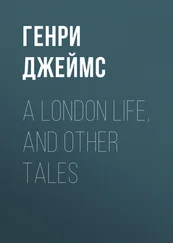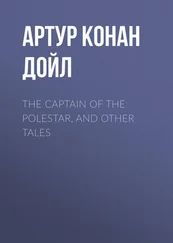Генри Джеймс - Lady Barbarina, The Siege of London, An International Episode, and Other Tales
Здесь есть возможность читать онлайн «Генри Джеймс - Lady Barbarina, The Siege of London, An International Episode, and Other Tales» — ознакомительный отрывок электронной книги совершенно бесплатно, а после прочтения отрывка купить полную версию. В некоторых случаях можно слушать аудио, скачать через торрент в формате fb2 и присутствует краткое содержание. Жанр: foreign_prose, literature_19, foreign_antique, на английском языке. Описание произведения, (предисловие) а так же отзывы посетителей доступны на портале библиотеки ЛибКат.
- Название:Lady Barbarina, The Siege of London, An International Episode, and Other Tales
- Автор:
- Жанр:
- Год:неизвестен
- ISBN:нет данных
- Рейтинг книги:4 / 5. Голосов: 1
-
Избранное:Добавить в избранное
- Отзывы:
-
Ваша оценка:
- 80
- 1
- 2
- 3
- 4
- 5
Lady Barbarina, The Siege of London, An International Episode, and Other Tales: краткое содержание, описание и аннотация
Предлагаем к чтению аннотацию, описание, краткое содержание или предисловие (зависит от того, что написал сам автор книги «Lady Barbarina, The Siege of London, An International Episode, and Other Tales»). Если вы не нашли необходимую информацию о книге — напишите в комментариях, мы постараемся отыскать её.
Lady Barbarina, The Siege of London, An International Episode, and Other Tales — читать онлайн ознакомительный отрывок
Ниже представлен текст книги, разбитый по страницам. Система сохранения места последней прочитанной страницы, позволяет с удобством читать онлайн бесплатно книгу «Lady Barbarina, The Siege of London, An International Episode, and Other Tales», без необходимости каждый раз заново искать на чём Вы остановились. Поставьте закладку, и сможете в любой момент перейти на страницу, на которой закончили чтение.
Интервал:
Закладка:
I could scarcely have said where the bricks had stood; the other, the superseded Washington of the exquisite springtime, of the earlier initiation, of the hovering plaintive ghosts, reduced itself to a great vague blur of warmth and colour and fragrance. It kept flushing through the present—very much as if I had had my small secret for making it. I could turn on my finger the magic ring—it was strange how slight a thing, a mere handful of pages of light persistent prose, could act as that talisman. So, at all events, I like to date, and essentially to synchronise, these sincere little studies in general. Nothing perhaps can vouch better for their having applied to conditions that superficially at least have changed than the fact that to fond memory—I speak of my own—there hangs about the last item on this list, the picture of “The Pension Beaurepas,” the unearthly poetry, as I call it, of the Paquis, and that I should yet have to plunge into gulfs of explanation as to where and what the Paquis may have been. An old-world nook of one’s youth was so named, a scrap of the lakeside fringe of ancient Geneva, now practically quite reformed and improved away. The Pension Beaurepas, across the years, looks to me prodigiously archaic and incredibly quaint; I ask myself why, at the time, I so wasted the precious treasure of a sense that absolutely primitive pre-revolutionary “Europe” had never really been swept out of its cupboards, shaken out of its curtains, thumped out of its mattresses. The echoes of the eighteenth century, to go no further back, must have been thick on its rather greasy stone staircase, up down which, unconscious of the character of the fine old wrought-iron rampe , as of most other things in the world besides, Mr. and Mrs. and Miss Ruck, to speak only of them, used mournfully to straggle. But I mustn’t really so much as speak only, as even speak, of them. They would carry me too far back—which possibly outlived verisimilitude in them is what I wish to acknowledge.
HENRY JAMES.LADY BARBARINA
I
It is well known that there are few sights in the world more brilliant than the main avenues of Hyde Park of a fine afternoon in June. This was quite the opinion of two persons who on a beautiful day at the beginning of that month, four years ago, had established themselves under the great trees in a couple of iron chairs—the big ones with arms, for which, if I mistake not, you pay twopence—and sat there with the slow procession of the Drive behind them while their faces were turned to the more vivid agitation of the Row. Lost in the multitude of observers they belonged, superficially at least, to that class of persons who, wherever they may be, rank rather with the spectators than with the spectacle. They were quiet simple elderly, of aspect somewhat neutral; you would have liked them extremely but would scarcely have noticed them. It is to them, obscure in all that shining host, that we must nevertheless give our attention. On which the reader is begged to have confidence; he is not asked to make vain concessions. It was indicated touchingly in the faces of our friends that they were growing old together and were fond enough of each other’s company not to object—since it was a condition—even to that. The reader will have guessed that they were husband and wife; and perhaps while he is about it will further have guessed that they were of that nationality for which Hyde Park at the height of the season is most completely illustrative. They were native aliens, so to speak, and people at once so initiated and so detached could only be Americans. This reflexion indeed you would have made only after some delay; for it must be allowed that they bristled with none of those modern signs that carry out the tradition of the old indigenous war-paint and feathers. They had the American turn of mind, but that was very secret; and to your eye—if your eye had cared about it—they might have been either intimately British or more remotely foreign. It was as if they studied, for convenience, to be superficially colourless; their colour was all in their talk. They were not in the least verdant; they were grey rather, of monotonous hue. If they were interested in the riders, the horses, the walkers, the great exhibition of English wealth and health, beauty, luxury and leisure, it was because all this referred itself to other impressions, because they had the key to almost everything that needed an answer—because, in a word, they were able to compare. They had not arrived, they had only returned; and recognition much more than surprise was expressed in their quiet eyes. Dexter Freer and his wife belonged in fine to that great company of Americans who are constantly “passing through” London. Enjoyers of a fortune of which, from any standpoint, the limits were plainly visible, they were unable to treat themselves to that commonest form of ease, the ease of living at home. They found it much more possible to economise at Dresden or Florence than at Buffalo or Minneapolis. The saving was greater and the strain was less. From Dresden, from Florence, moreover, they constantly made excursions that wouldn’t have been possible with an excess of territory; and it is even to be feared they practised some eccentricities of thrift. They came to London to buy their portmanteaus, their toothbrushes, their writing-paper; they occasionally even recrossed the Atlantic westward to assure themselves that westward prices were still the same. They were eminently a social pair; their interests were mainly personal. Their curiosity was so invidiously human that they were supposed to be too addicted to gossip, and they certainly kept up their acquaintance with the affairs of other people. They had friends in every country, in every town; and it was not their fault if people told them their secrets. Dexter Freer was a tall lean man, with an interested eye and a nose that rather drooped than aspired, yet was salient withal. He brushed his hair, which was streaked with white, forward over his ears and into those locks represented in the portraits of clean-shaven gentlemen who flourished fifty years ago and wore an old-fashioned neckcloth and gaiters. His wife, a small plump person, rather polished than naturally fresh, with a white face and hair still evenly black, smiled perpetually, but had never laughed since the death of a son whom she had lost ten years after her marriage. Her husband, on the other hand, who was usually quite grave, indulged on great occasions in resounding mirth. People confided in her less than in him, but that mattered little, as she confided much in herself. Her dress, which was always black or dark grey, was so harmoniously simple that you could see she was fond of it; it was never smart by accident or by fear. She was full of intentions of the most judicious sort and, though perpetually moving about the world, had the air of waiting for every one else to pass. She was celebrated for the promptitude with which she made her sitting-room at an inn, where she might be spending a night or two, appear a real temple of memory. With books, flowers, photographs, draperies, rapidly distributed—she had even a way, for the most part, of not failing of a piano—the place seemed almost hereditary. The pair were just back from America, where they had spent three months, and now were able to face the world with something of the elation of people who have been justified of a stiff conviction. They had found their native land quite ruinous.
“There he is again!” said Mr. Freer, following with his eyes a young man who passed along the Row, riding slowly. “That’s a beautiful thoroughbred!”
Mrs. Freer asked idle questions only when she wanted time to think. At present she had simply to look and see who it was her husband meant. “The horse is too big,” she remarked in a moment.
Читать дальшеИнтервал:
Закладка:
Похожие книги на «Lady Barbarina, The Siege of London, An International Episode, and Other Tales»
Представляем Вашему вниманию похожие книги на «Lady Barbarina, The Siege of London, An International Episode, and Other Tales» списком для выбора. Мы отобрали схожую по названию и смыслу литературу в надежде предоставить читателям больше вариантов отыскать новые, интересные, ещё непрочитанные произведения.
Обсуждение, отзывы о книге «Lady Barbarina, The Siege of London, An International Episode, and Other Tales» и просто собственные мнения читателей. Оставьте ваши комментарии, напишите, что Вы думаете о произведении, его смысле или главных героях. Укажите что конкретно понравилось, а что нет, и почему Вы так считаете.












